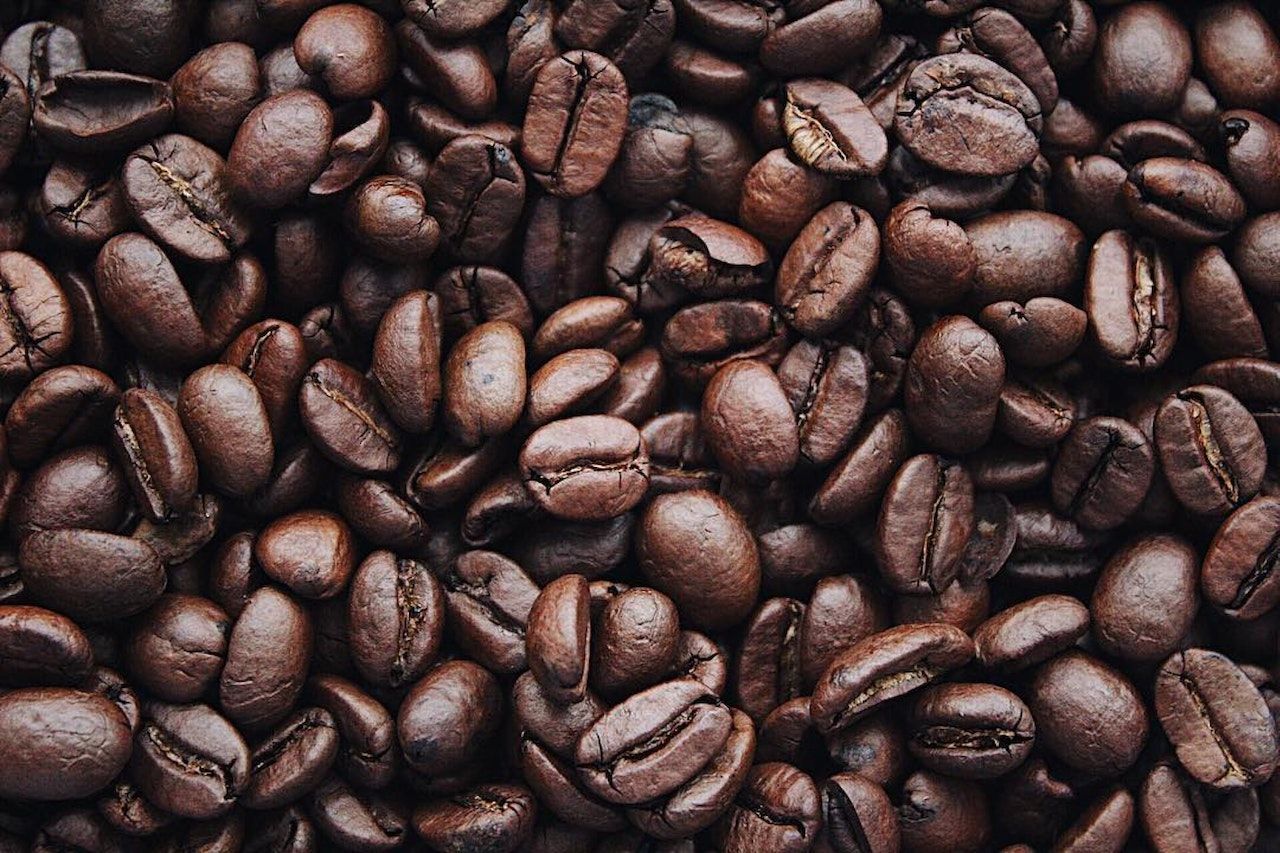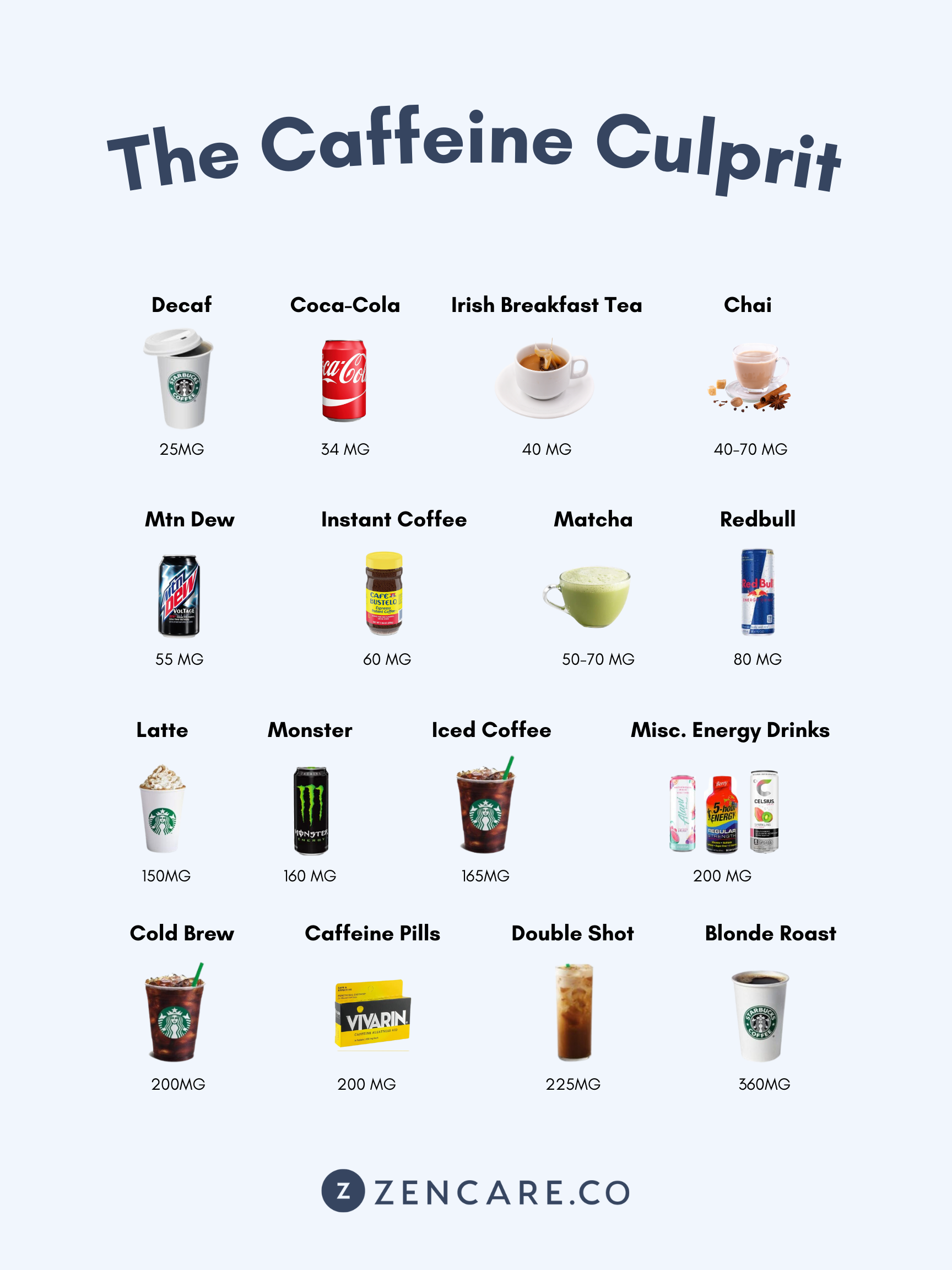[ad_1]
You may well have by now listened to about the connection in between caffeine and stress and anxiety, and uncovered it to be puzzling. If there is very little a lot more comforting than a heat beverage in your favored mug, how could that be probably linked to panic? Having said that, for some people, there is distinct evidence that points to a relationship involving caffeine and anxiousness.
Go through on to learn if this could be true for you, and if your panic may be exacerbated by your drink decisions.

What is anxiousness?
Anxiousness is an emotion, but it is also the title of a mental health problem. When a person feels nervous, they may perhaps experience listless with anticipation or eaten with their get worried. Lots of people today really feel nervous although they’re waiting around for a exam end result, while they are waiting for a textual content from a person they like, or when they’re traveling to a location they have not been prior to. These thoughts of anxiousness are condition-acceptable, and generally are not cause for issue.
However, if these feelings of panic turn out to be regular with no a distinct lead to — or if that lead to doesn’t warrant the magnitude of a person’s anxiety reaction — then this may be the mental health and fitness problem referred to as anxiousness.
Lots of persons suffer from social nervousness, exactly where they battle to truly feel comfortable in social scenarios. Many others have stress and anxiety right after they’ve seasoned traumatic ordeals, which leave them experience unsafe or in risk. This can result in post-traumatic anxiety dysfunction (PTSD) or worry assaults.
Typical signs of anxiety contain restlessness, speedy breathing, nervousness, trembling, experience weak or fatigued, or problems concentrating. This can influence a person’s means to eat or slumber, which can have carry-on outcomes on their wellbeing, and they may well also suffer from gastrointestinal concerns.
Although stress and anxiety appears diverse for just about every man or woman, its hallmark is extreme fret, rumination, and fear. It can be a complicated and intensive working experience that can negatively effects a person’s associations, self-esteem, and potential to perform or research.

What is caffeine?
Most people associate the term “caffeine” with coffee. Even so, caffeine can be discovered in a amount of drinks and food items, like tea, soda, and chocolate.
Caffeine is a molecule that impacts mind perform, and is viewed as risk-free to take in in little quantities. It’s regarded as a “psychoactive substance” because it changes your mind chemistry. Most individuals take in caffeine for the reason that it allows them wake up and feel extra mentally inform, which takes place since this molecule blocks the chemical typically linked with tiredness termed adenosine.
What is the connection in between caffeine and stress?
While there are many mental health advantages to expending a mindful instant drinking a cup of espresso or tea, there is also evidence at the rear of the relationship amongst caffeine and anxiousness.
Caffeine can trigger some of the identical bodily manifestations of stress, like jitters, an elevated coronary heart charge, and racing ideas. Since our minds and bodies are intertwined, from time to time our minds misread our actual physical sensations and interpret them as feelings — like stress. At its most significant, high doses of caffeine can result in stress attacks.
Does caffeine bring about anxiety?
It’s challenging to say the actual root induce of anyone’s nervousness — it is a blend of genetics, environmental variables, uncovered reactions, and person tendencies. Overall, caffeine doesn’t bring about anxiousness, even so it can lead to one’s practical experience of panic.
If you are not absolutely sure whether your caffeine routine is impacting your psychological wellbeing, you can test steadily lowering your consumption. By decreasing your caffeine consumption, you can evaluate how a great deal it impacts your mental health. If you find yourself emotion significantly less anxious when you take in a lot less coffee, then there could possibly be a partnership among caffeine and your nervousness.
How significantly caffeine must I be obtaining?
All people reacts to caffeine in a different way due to dissimilarities in rate of metabolism. Caffeine can also feel significantly less strong when consumed with other foodstuff or beverage, so the two the strategy and quantity of your intake can impression how your entire body reacts.
Typical every day consumption
In normal, it is ideal to hold your caffeine consumption to 400 mg (1), which is the equivalent of 4 cups of espresso for each working day. Anything at all around 1,200 mg (1) per day can be hazardous to your bodily wellness. By spreading out your intake, your human body has a likelihood to metabolize the molecule a lot more gradually, which can lessen some of the extra visible signals of caffeine like shakiness.
Restricting caffeine’s outcomes
You can avoid caffeine’s results by limiting your every day caffeine consumption to a certain time of the working day, these as preventing caffeine just after lunch. This can help avert emotions of anxiety into the evening, a time through which you may possibly discover your feelings additional without the need of the distraction of function or university. Take note that some prescription drugs can also impression your skill to metabolize caffeine if you imagine that may possibly be your practical experience, you can inquire your medical doctor about likely drug interactions with caffeine.
How a lot caffeine is in espresso?
In a single cup of espresso, there is around 100 mg of caffeine. Different types of espresso include distinct concentrations of caffeine. An 8 oz cup of brewed or drip espresso includes additional caffeine than a shot of espresso. Additionally, decaffeinated, or “decaf” coffee is not caffeine-free of charge. A cup of decaf espresso has on typical 2-15mg of caffeine.
With so many distinct varieties of tea, there are varying quantities of caffeine for each cup. Black tea includes the most caffeine, with about 50 mg for every cup, adopted by green tea with 25 mg. This is much more than a cup of soda, which typically has about 40 mg of caffeine.
How do I lessen my caffeine consumption?
If you imagine that your caffeine ingestion could be a trigger at the rear of your nervousness, it might be in your greatest interest to cut down your caffeine use. Like all typical behavior, it can be tough to give up chilly turkey. The extended you expose your procedure to caffeine, the more your overall body expects it. Some people working experience indications of withdrawal like headaches, trembling, and drowsiness when they try out to quit absolutely.
If you’d like to cease consuming caffeine but you’re nervous about withdrawal, you may perhaps advantage from step by step lessening your caffeine consumption about time, rather than halting all at when.
How do I take care of caffeine withdrawal?
Ought to you experience physical signs or symptoms of caffeine withdrawal, be individual with by yourself — it may well consider a few weeks for your human body to adjust to its new way of performing, a single with no caffeine. Hold in brain that, ironically, caffeine withdrawal can also lead to stress and anxiety, so be certain to have interaction in other self-soothing approaches to deal with your nervousness as you’re letting your system adjust.
What are some very low caffeine options?
Just one of the methods to lessen your caffeine usage is to swap out your cups of coffee or tea for low caffeine choices. Inquiring for “half-caff” coffee (50 percent a cup of comprehensive toughness espresso and fifty percent a cup of decaffeinated espresso) can be a valuable different to a whole cup of caffeinated coffee. You might also consume a distinctive sort of tea, like environmentally friendly tea, which includes fewer caffeine than espresso or black tea.
How do I regulate caffeine withdrawal?
Ought to you knowledge bodily symptoms of caffeine withdrawal, be patient with you — it may possibly acquire a few months for your entire body to regulate to functioning with out caffeine. Preserve in head that, ironically, caffeine withdrawal can also bring about anxiousness, so be sure to interact in other self-soothing methods to take care of your panic as you’re allowing your physique alter. If your signs or symptoms persist for a important quantity of time, you could want to consult your health practitioner for guidelines on managing the withdrawal.
How a therapist can aid with handling nervousness
Several therapists specialize in serving to persons with their nervousness, specifically when their stress begins to disrupt their activities of day by day lifestyle like going to get the job done, connecting with other individuals, or eating and sleeping.
Therapists can enable you establish the causes behind your anxiousness. Some of them could be behavioral, like your diet program and caffeine ingestion, but some others could be rooted in childhood ordeals, relationships, or trauma. By conversing about your life and expressing your feelings, you could connect sure recollections with existing thoughts.
If you’re searching for a therapist who specializes in treating anxiousness, you can filter the Zencare therapist listing by speciality. Seem for a therapist who has working experience in encouraging customers with their panic, and view their introductory online video to get a sense of their character or type. When you discover a therapist who appears to be what you’re on the lookout for, agenda a absolutely free session contact to established up your initial appointment.
References
[ad_2]
Resource backlink

